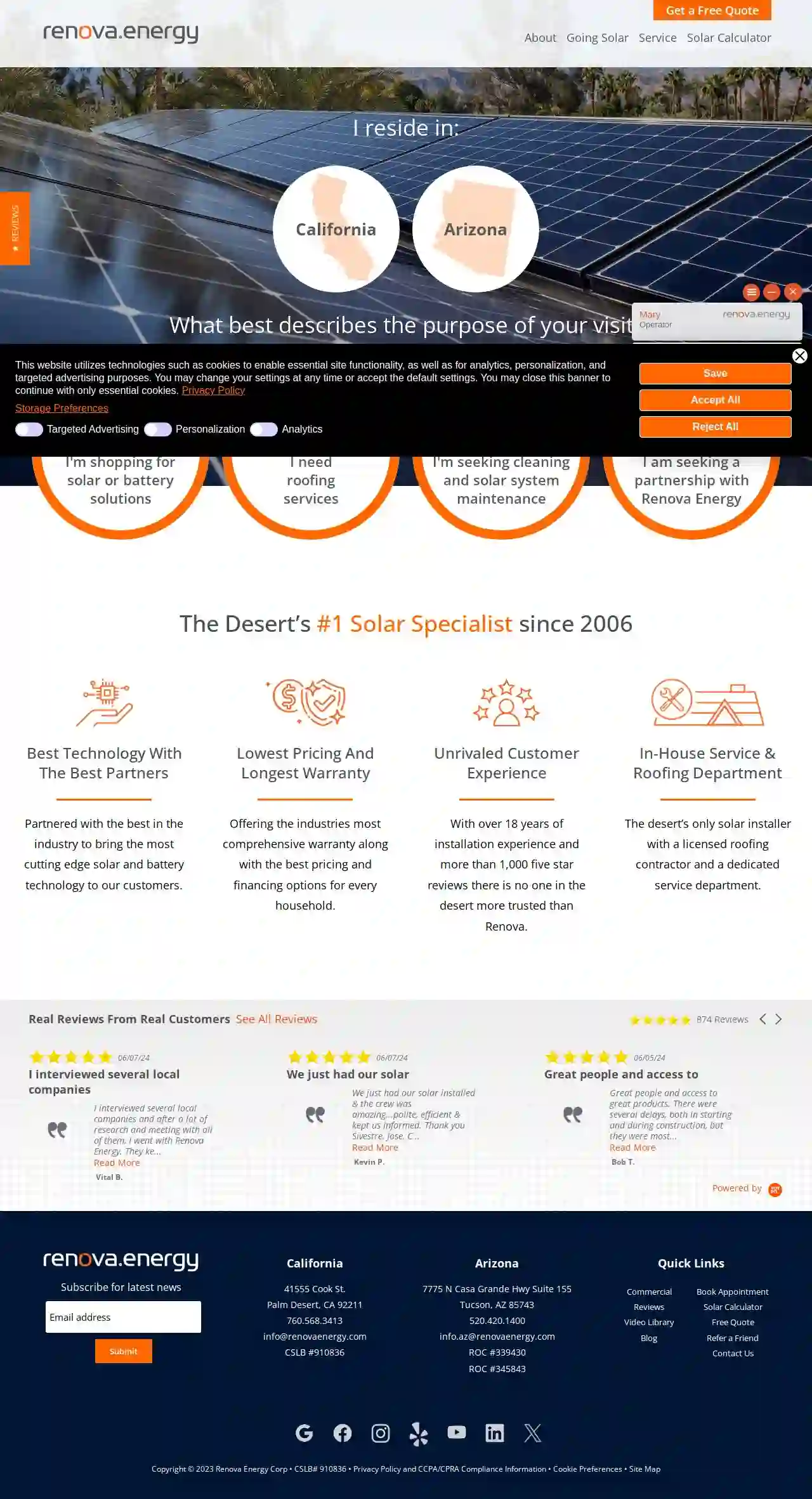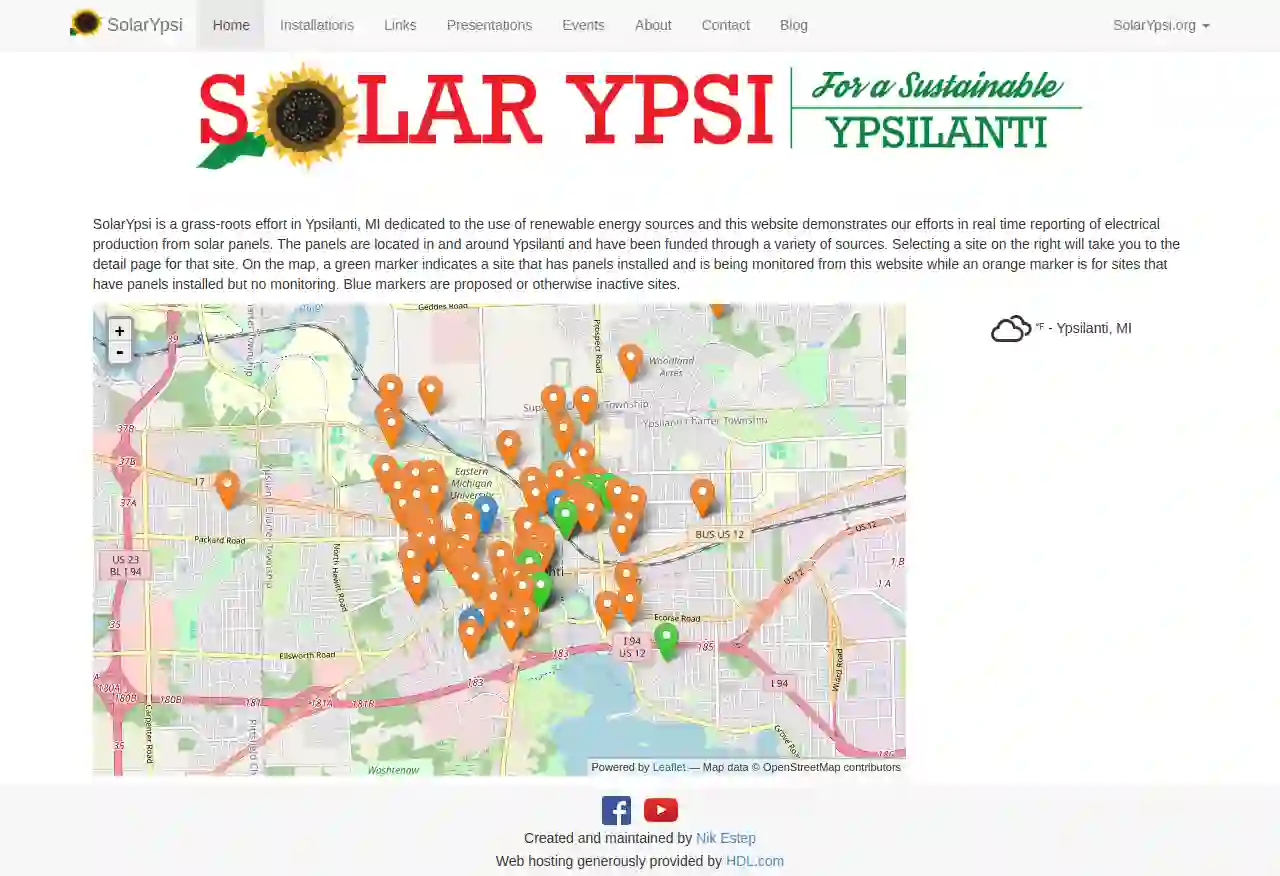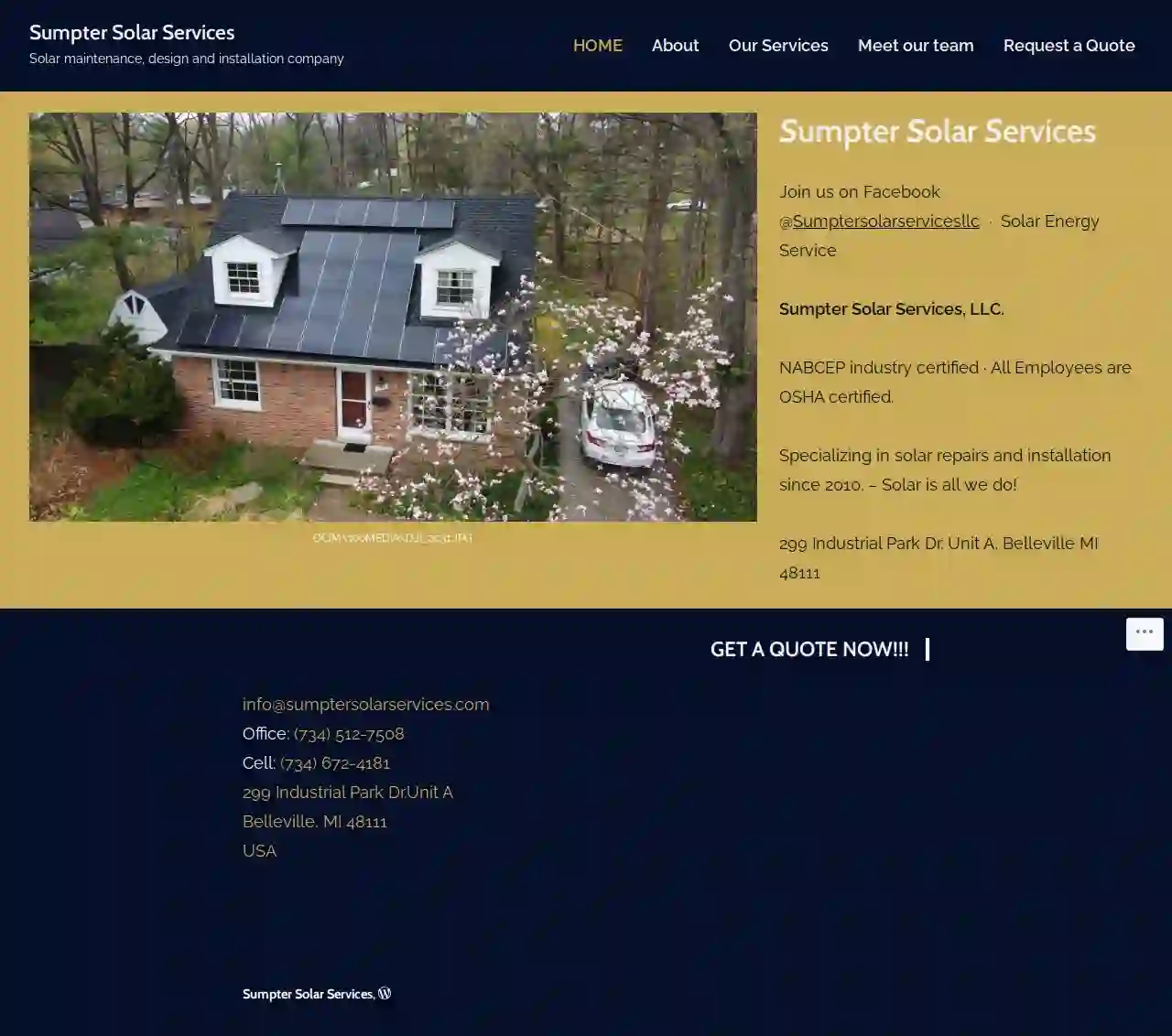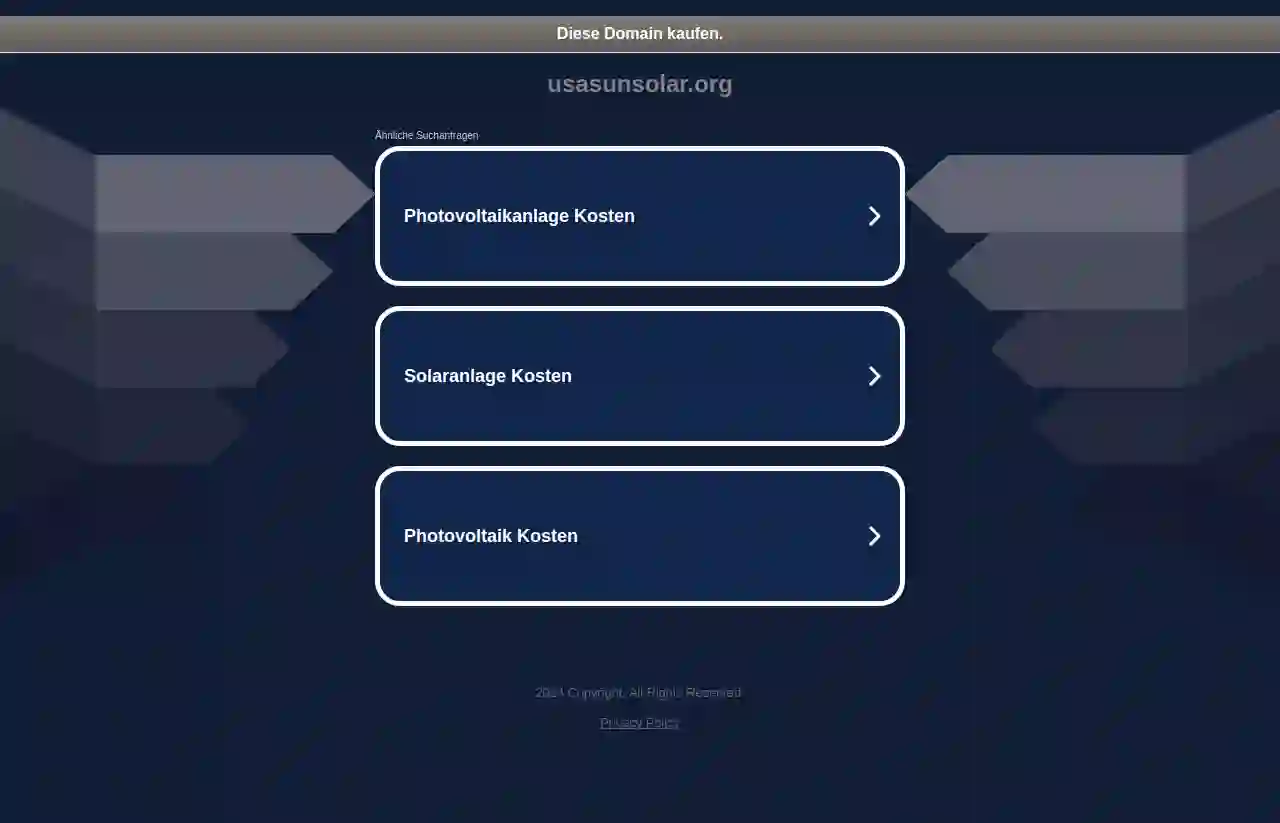Solar Installers Lincoln Park
Find Solar Installation Company in Lincoln Park
Receive up to 3 Solar Contractors quotes for your project today! Compare profiles, reviews, accreditations, portfolio, etc... and choose the best deal.

Timo Solar
54 reviewsPalm Springs, CA, 123 Solar Way, 92262, USTimo Solar is dedicated to helping homeowners throughout Palm Springs, Palm Desert, Rancho Mirage, Indian Wells, and Cathedral City, with their solar journey by acting as a knowledgeable guide and a supportive partner. They offer various services including new system installation, solar maintenance, and energy storage.
- Services
- Why Us?
- Accreditations
- Our Team
- Testimonials
- Gallery
Get Quote
North Coast Solar
4.954 reviewsNorth Coast Solar, Davison, MI, 7524 East Atherton Road, 48423, USNorth Coast Solar is a Michigan-based solar installer that offers solar services, generators, and electrical upgrades. They are the only certified solar installer in Michigan to provide both Solar Insure and a Pearl Certification with each installation. Solar Insure provides a 30-year parts and labor warranty on all systems and is backed by Zurich North America. Pearl Certifications ensure that the value of your home will indeed increase with the installation of your solar system and are backed by the Department of Energy and the National Association of Realtors.
- Services
- Why Us?
- Accreditations
- Our Team
- Testimonials
- Gallery
Get Quote
Solar King
4.743 reviews123 Solar Street, Suite 100, Detroit, 48201, USSolar King is a Michigan-based solar panel installer that makes going solar easy. We provide solutions for all residential and commercial properties. Our work ranges from homes, farms, ground mounts and barns, with projects ranging from 10 to 250+ panels including complete battery backup options available.
- Services
- Why Us?
- Accreditations
- Our Team
- Testimonials
- Gallery
Get Quote
Renova Energy
4.7296 reviewsPalm Desert, CA, 41555 Cook St., 92211, USRenova Energy Corp is the desert's #1 solar specialist since 2006, offering the best technology with the best partners, lowest pricing and longest warranty, unrivaled customer experience, and in-house service & roofing department. They are partnered with the best in the industry to bring cutting-edge solar and battery technology to customers. Renova Energy has over 18 years of installation experience and more than 1,000 five-star reviews, making them the most trusted solar installer in the desert.
- Services
- Why Us?
- Accreditations
- Our Team
- Testimonials
- Gallery
Get Quote
Helios Solar LLC
4.967 reviewsKalamazoo, MI, USA, 248 W. Michigan Ave, 49007, USWest Michigan’s most trusted solar company. Since 2009, Helios Solar has been West Michigan's go-to source for affordable solar energy installations for homes, businesses, and nonprofit organizations.
- Services
- Why Us?
- Accreditations
- Our Team
- Testimonials
- Gallery
Get Quote
The University of Michigan Solar Car Team
4.58 reviewsSolar Car Team, University of Michigan, 1234 Solar Way, Ann Arbor, 48109, USThe University of Michigan Solar Car Team is an entirely student-run organization that designs, builds, and races solar electric vehicles. Since its establishment in 1989, the team has built 17 vehicles.
- Services
- Why Us?
- Accreditations
- Our Team
- Testimonials
- Gallery
Get Quote
solarypsi
312 North River Street, Ypsilanti, 48198, USSolarYpsi is a grass-roots effort in Ypsilanti, MI dedicated to the use of renewable energy sources and this website demonstrates our efforts in real time reporting of electrical production from solar panels. The panels are located in and around Ypsilanti and have been funded through a variety of sources.
- Services
- Why Us?
- Accreditations
- Our Team
- Testimonials
- Gallery
Get Quote
Sumpter Solar Services, LLC.
4.314 reviews299 Industrial Park Dr. Unit A, Belleville, 48111, USSumpter Solar Services is a solar maintenance, design, and installation company specializing in solar repairs and installation since 2010. They are NABCEP industry certified and all employees are OSHA certified. Their services include solar maintenance, design, and installation.
- Services
- Why Us?
- Accreditations
- Gallery
Get Quote
USA Sun Solar Power
51 reviews123 Solar Way, Suite 100, Beverly Hills, 90210, USUSA Sun Solar is a leading provider of solar energy solutions, dedicated to helping individuals and businesses harness the power of the sun to reduce their energy costs and carbon footprint. With a strong commitment to sustainability and customer satisfaction, USA Sun Solar offers a range of services including solar panel installation, maintenance, and repair. Their team of experienced professionals ensures that every project meets the highest standards of quality and efficiency.
- Services
- Why Us?
- Accreditations
- Our Team
- Testimonials
Get Quote
Solar Gain West
1234 E. 6th St., Tucson, 85705, USSolar Gain is a leading provider of solar solutions, offering turnkey services for commercial and residential clients. With expertise in solar design, installation, and maintenance, Solar Gain aims to provide long-term value to customers. The company is licensed in Arizona and California as an electrical and general engineering contractor, specializing in rooftop, canopy, and ground mount solar solutions.
- Services
- Why Us?
- Accreditations
- Our Team
- Testimonials
- Gallery
Get Quote
Over 4,210+ Solar Contractors on our platform
Our solar installers operate in Lincoln Park and surroundings!
SolarCompaniesHub has curated and vetted Top Solar Companies arround Lincoln Park. Find the most reliable pro today.
Frequently Asked Questions About Solar Installers
- System size
- Roof complexity
- Weather conditions
- Permitting and inspections
- Installer's schedule
- Keep Panels Clean: Clean panels periodically to remove dirt, debris, and bird droppings, which can reduce efficiency. Rainfall usually cleans panels adequately, but you might need to hose them down occasionally.
- Visual Inspections: Regularly inspect panels for signs of damage, loose wiring, or other issues.
- Professional Maintenance: Consider having a professional solar installer inspect your system every few years to ensure optimal performance.
How long does it take to install solar panels?
Do I need planning permission to install solar panels in USA?
How do I maintain my solar panels?
What is the lifespan of solar panels?
How long does it take to install solar panels?
- System size
- Roof complexity
- Weather conditions
- Permitting and inspections
- Installer's schedule
Do I need planning permission to install solar panels in USA?
How do I maintain my solar panels?
- Keep Panels Clean: Clean panels periodically to remove dirt, debris, and bird droppings, which can reduce efficiency. Rainfall usually cleans panels adequately, but you might need to hose them down occasionally.
- Visual Inspections: Regularly inspect panels for signs of damage, loose wiring, or other issues.
- Professional Maintenance: Consider having a professional solar installer inspect your system every few years to ensure optimal performance.